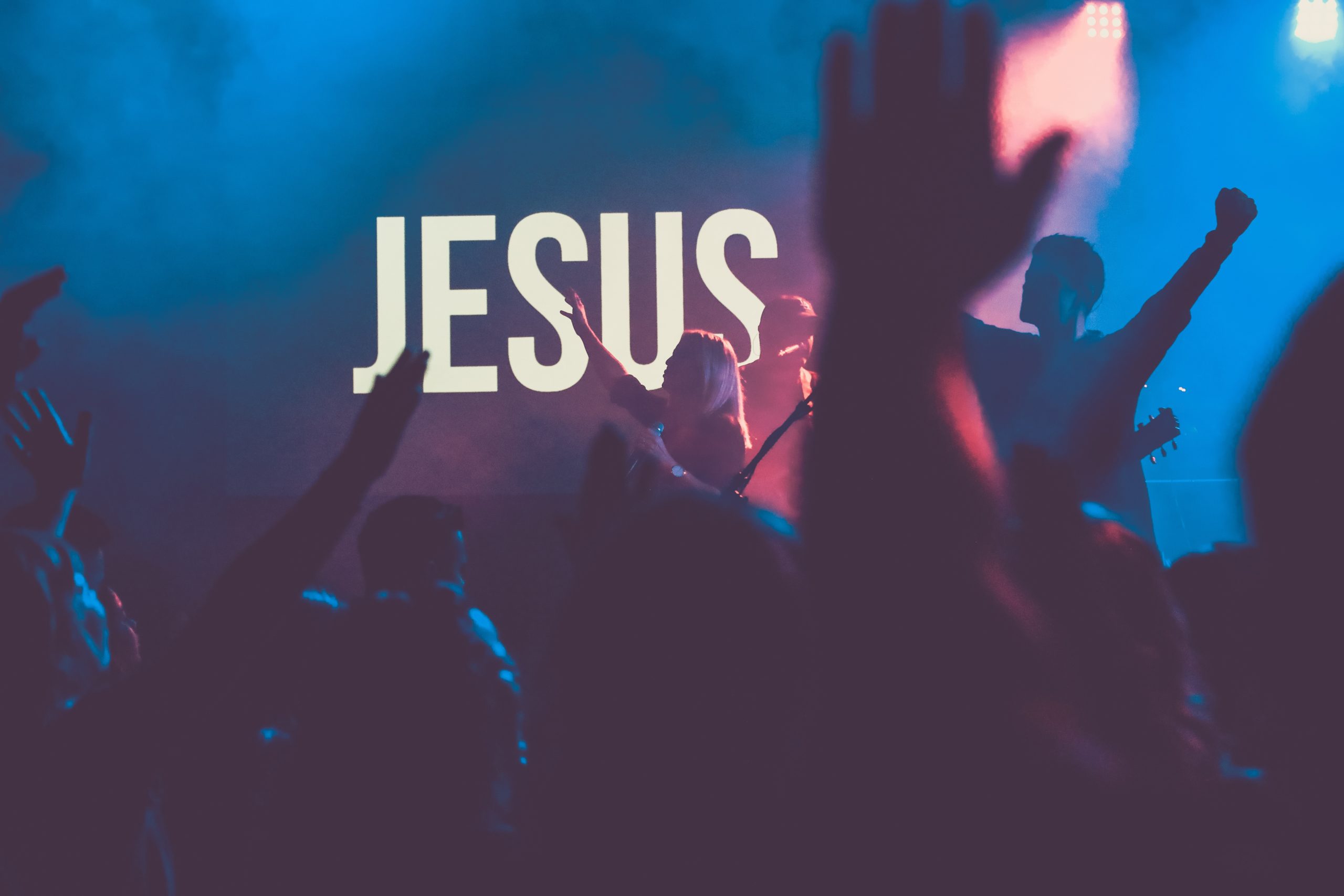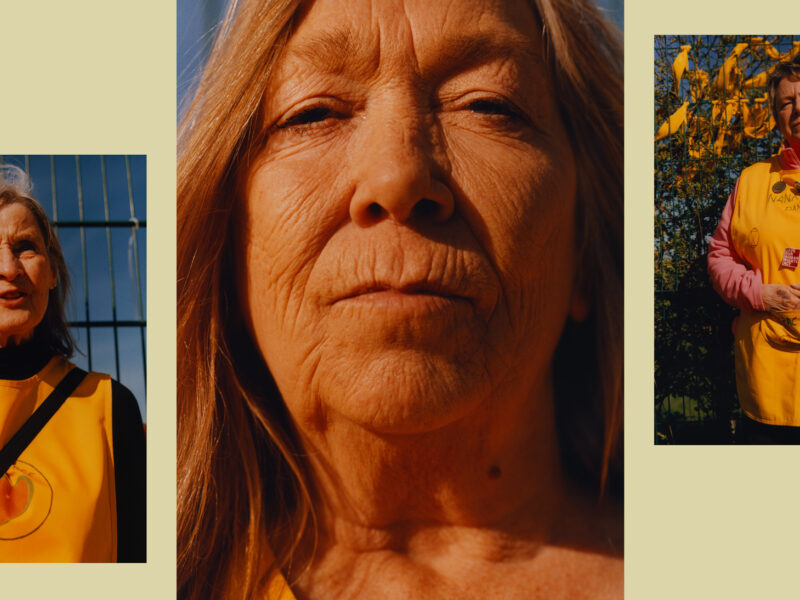For the Christian Right, religious freedom means their right to discriminate against people who don’t share their beliefs.
In Bible class at my evangelical high school, I was taught that pluralism is “heresy” and must be rejected. This was a more formal way of conveying what I had already learned as a small child— that it was the task of all Christians to convert everyone to Christianity, and that the world would be a much better place if everyone were Christian.
A person who is committed to the liberal democratic project will probably be appalled at the idea of teaching children to desire a world in which everyone follows the same religion. Many, however, do not share that reaction—and that is because Christian hegemony is so smoothly woven into the fabric of American life that they fail to recognize it. Christian privilege and Christian supremacism are very real; if we are ever going to see the United States live up to the democratic potential contained in the higher ideals of the founding fathers, however much they failed to realize those ideals, we must be as committed to its dismantling as we are to that of white supremacism.
Pluralism: what’s at stake
Pluralism, of course, refers to people of diverse and conflicting beliefs coexisting peaceably, linked by their adherence to a shared social contract which commits members of different groups to treating others fairly and accommodating them equally in the public square. Outside academic settings, however, pluralism is little discussed these days—except by right-wing Christians. That’s a problem: failing to articulate a liberal understanding of pluralism will allow the authoritarian Christian Right, already advantaged in what I recently argued in Playboy Magazine is our de facto Christian public sphere, to drag the country ever further rightward.
Liberals do not feel comfortable discussing the place of religion in the public sphere, says Jeremy Forest Price, assistant professor of education and chair of the Jewish Faculty and Staff Council at Indiana University – Purdue University Indianapolis. Avoiding the topic, however, has unintended consequences. “It allows those who seek to push their own religious agendas, particularly evangelical Christians, Christian dominionists*, and Christian nationalists, to [convince the public] not only to support their beliefs and practices over others, but to make the public sphere itself mirror their beliefs and practices.”
Because they reflexively support the separation of church and state, and therefore may not feel an innate sense of urgency to articulate its value, liberals and progressives run the risk of ceding the national discourse on pluralism to the Right.
Fortunately, there is an increasingly visible broad-based movement, including both believers and non-believers, who oppose the Christian nationalism that is ascendant in the Trump era. They are working actively to reclaim the meaning of religious freedom from those who would define it as the right to discriminate against members of othered groups on the basis of “sincerely held religious beliefs,” even at the expense of equal accommodation in the public square. I contend that we need similarly to reclaim the liberal value of pluralism.
Paul Rosenberg, a writer and activist who has documented and championed this movement, says that pluralism requires an openness that religious fundamentalists lack, and when it comes to building and participating in a functional democratic society, what people do is more important than their espoused beliefs. “It is in doing the work that we discover what we have in common,” he said, noting that the work itself leads to an appreciation of our differences.
I asked other stakeholders to comment on what pluralism means to them in theory and practice, hoping to encourage further discussion of this critical civic concept among those of us who reject the Republican Party’s authoritarianism. To understand the stakes, we need to take a brief look at the state of the discourse around pluralism on the Christian Right.
According to reactionary Catholic scholar Brad Gregory, “hyper-pluralism” is to blame for everything that ails the modern West, and the solution would seem to be a return to some sort of imagined Catholic unity. This would undoubtedly entail many horrors for non-Christians, women, and members of the LGBTQ community.
Russell Moore , the president of the Southern Baptist Convention’s Ethics & Religious Liberty Commission, is among those conservative Christians who dismiss pluralism as “heresy.” Sohrab Ahmari, the radical Catholic writer, unabashedly argues that conservative Christians should “enforce our order and our orthodoxy.” Attorney General William Barr seems to share this view: in a speech he delivered at Notre Dame University this past October, Barr decried “militant secularists” who were supposedly “behind a campaign to destroy the traditional moral order.” C. Colt Anderson, a Catholic theologian and professor of religion at Fordham University, was so appalled by the extremism in Barr’s remarks that he called him “a threat to American democracy.”
There are other conservative Christian commentators, however—people like evangelical historian John Fea and David French, a frequent contributor to The National Review—who embrace a concept of pluralism very much of a piece with the Christian Right’s understanding of “religious liberty” as their liberty to discriminate against others, including Christians with whom they disagree. Fea and French are public figures who enjoy a degree of respectability; it is dangerous to cede our contemporary understanding of pluralism exclusively to them and to those even further to the right. The Christian Right already dominates sex education in our public schools and has effectively ended abortion in numerous states. Christian hospitals regularly deny women and queer people life-saving healthcare on the basis of strictly religious views that many of their patients do not share. Deregulated homeschooling, pushed above all by conservative Christians, allows abuse and fundamentalist indoctrination to flourish. If liberals will not argue the meaning of pluralism and religious freedom precisely as liberal values, the Christian Right will only subject more and more of American life to its harmful theocratic agenda.
So what might a liberal pluralism predicated on robust separation of church and state and equal accommodation in the public square look like? And how might we navigate the tensions not just between representatives of different confessions, but also between believers and non-believers?
Liberal pluralism in theory and practice
Non-religious voters now make up the single largest defined bloc within the Democratic Party. But a large and significant part of the party’s base is composed of Christians—especially African-American Christians. It is self-evidently necessary for progressive atheists and agnostics to build coalitions with progressive believers and to work together toward the common good. Loud voices in the visible atheist community, like the prominent neuroscientist Sam Harris and Richard Dawkins, the evolutionary biologist and author, often alienate not only religious believers, but also women and people of color with remarks that are Islamophobic, racist, and misogynist. Progressive atheists who are interested in coalition building must work to repair the bridges that these men and their trollish online fans have damaged.
Tom Van Denburgh, communications director for American Atheists, acknowledged that “people within the atheist community sometimes engage in anti-religious rhetoric,” but attributes this anger in most cases to their having been harmed by religion. But he agrees that justifiable anger at religious privilege, which in the United States primarily pertains to Christians, must not become an excuse to dehumanize all religious people. “While there’s still a lot of work to do, the atheist community has become increasingly inclusive and more concerned about how religious privilege impacts different groups in disparate ways. And that means advocating for women, LGBTQ people, members of minority faith communities, and people of color.” He added: “Integral to [our] work is building bridges with religious allies when we find common ground.”
American Atheists can point to practical achievements in this regard, notably the launch of BlitzWatch Coalition, a project dedicated to opposing the Christian nationalist agenda of Project Blitz, which seeks to impose hardline Christian values on every aspect of American political and civil society. Van Denburgh sees the work involved in BlitzWatch Coalition as authentic pluralism in practice, and BlitzWatch Coalition’s member organizations include the Interfaith Alliance and the Religious Coalition for Reproductive Choice (RCRC).
For Rev. Dr. Cari Jackson, RCRC’s Director of Spiritual Care and Activism, pluralism is associated above all with compassion. “To be compassionate requires decentering or stepping outside one’s own experiences in order to give priority to the experiences of others,” Jackson said. This task is more challenging, she added, for those who “are part of any privileged hegemony” because of “a limitation of experience and exposure.”
Christianity represents one of these hegemonies, said Jackson. “For interfaith dialogues to be healthy and viable, now is a critical time for atheist perspectives to be included,” she said, adding: “The path to social harmony and national unity is paved by compassion for and a genuine valuing of the stranger, those whose beliefs, practices, and so on, are different from those in the social, religious or political majority.”
Jeremy Forest Price, who is involved in interfaith work, agrees with Jackson on the importance of clear-eyed honesty regarding power dynamics and the importance of representation. “An emphasis on pluralism will help open up the discussion around religion (and worldviews, spiritualities, and the absence of religion) so that we can trace the ways that specific religious ideologies influence our shared public spaces,” he said.
Such tracing must include facing the impact of Christian supremacism in the United States, which means breaking the social taboo on criticizing any large Christian group. The focus of much of my own work in recent years has been on facilitating the collective visibility of ex-evangelicals and others who have left fundamentalist religion, and on advocating for us to be heard in our national discussions of religion and politics. Efforts to halt America’s lurch into authoritarianism will fail unless we shift the national discourse on Christianity.
I believe that by devoting some serious thought and effort to pluralism, both theory and practice, those of us who support democracy and human rights might succeed in nudging the American public sphere toward the kind of discourse that will aid us in the the realization of this country’s democratic potential.
* While there are a number of specific fundamentalist Christian ideologies whose adherents refer to themselves as Dominionists (for example, Seven Mountains Dominionism), broadly defined, Christian dominionism simply refers to the beliefs and politics of Christians who pursue social domination over members of other groups by enshrining their religious beliefs in coercive law.



